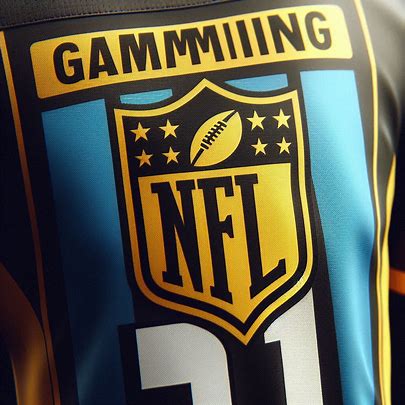Belgium’s 2025 Regulations Reshape Football Sponsorships
 Belgium’s football scene faces a major shift starting January 2025. The Belgian Gaming Commission has rolled out new rules that tighten the grip on gambling-related sponsorships in the sport. These changes aim to curb the influence of betting companies, a move that’s sparking debates among clubs, fans, and sponsors alike. What does this mean for the beautiful game in Belgium? Let’s dive into the details.
Belgium’s football scene faces a major shift starting January 2025. The Belgian Gaming Commission has rolled out new rules that tighten the grip on gambling-related sponsorships in the sport. These changes aim to curb the influence of betting companies, a move that’s sparking debates among clubs, fans, and sponsors alike. What does this mean for the beautiful game in Belgium? Let’s dive into the details.
Football clubs in Belgium have long relied on sponsorships from betting companies to fund their operations. From stadium ads to shirt logos, these partnerships have been a financial lifeline. However, the new regulations are shaking things up. Specifically, the rules limit where and how gambling-related logos can appear on sportswear. For instance, betting company logos are now banned from player jerseys during matches. Moreover, sponsorships must come from entities not directly tied to games of chance, such as football betting platforms (judi bola). This change forces clubs to rethink their partnerships and seek alternative revenue streams.
Why the Change?
The Belgian Gaming Commission’s decision stems from growing concerns about gambling’s impact on society. Authorities argue that flashy betting ads, especially in football, normalize gambling for younger audiences. Studies show that fans, including minors, are exposed to betting promotions during matches, which can influence risky behaviors. By restricting these sponsorships, Belgium aims to protect vulnerable groups while maintaining the sport’s integrity. Yet, some question whether these measures go far enough or if they unfairly burden clubs.
A Financial Hit for Clubs
Clubs in Belgium’s Pro League, like Anderlecht and Club Brugge, face a tough road ahead. Sponsorships from betting firms often account for a significant chunk of their budgets. Losing these deals could strain finances, especially for smaller clubs. For example, a mid-tier club might rely on sponsorships to sign new players or upgrade facilities. Without these funds, some fear a dip in competitiveness. On the other hand, larger clubs with diverse revenue streams may adapt more easily. Still, the transition won’t be seamless for anyone.
Interestingly, the regulations don’t ban all gambling-related sponsorships outright. Instead, they set strict boundaries. Companies not directly involved in betting operations can still sponsor teams, but their branding must follow tight guidelines. This opens the door for creative workarounds, like partnerships with affiliate companies or non-betting subsidiaries. However, navigating these rules will require careful legal planning, adding complexity for clubs and sponsors.
Fan Reactions: A Mixed Bag
Fans are split on the new rules. Some applaud the move, seeing it as a step toward cleaner, family-friendly football. “I don’t want my kids bombarded with betting ads at games,” one supporter shared on social media. Others, however, worry about the financial fallout for their favorite teams. “If clubs lose money, ticket prices could go up,” another fan pointed out. The debate reflects a broader tension between ethical concerns and the practical realities of modern football.
Europe’s Broader Context
Belgium isn’t alone in cracking down on gambling sponsorships. Countries like Spain and Italy have introduced similar restrictions, signaling a European trend. For instance, Spain banned gambling ads on football kits in 2021, pushing clubs to diversify their sponsorship portfolios. Belgium’s approach, though, is unique in its focus on entities “not directly involved in games of chance.” This nuance allows some flexibility but also creates gray areas that could lead to legal disputes.
Across Europe, the push for regulation comes as gambling’s societal impact draws scrutiny. Problem gambling rates have risen in recent years, prompting governments to act. In Belgium, the Gaming Commission estimates that over 200,000 citizens struggle with gambling-related issues. By targeting football sponsorships, regulators hope to reduce exposure, particularly for younger fans. Yet, critics argue that these measures may simply shift advertising to less regulated platforms, like online streaming or social media.
READ ALSO: 7 Ways Live Score Sites Enhance Your Online Football Betting Experience
What’s Next for Belgian Football?
As January 2025 approaches, clubs are scrambling to adapt. Some are already exploring partnerships with non-gambling brands, like tech or beverage companies. Others are lobbying for leniency, arguing that the rules could harm the sport’s growth. Meanwhile, the Belgian Gaming Commission plans to monitor compliance closely, with fines for violations. How strictly these rules will be enforced remains to be seen.
Looking ahead, the regulations could reshape Belgian football’s landscape. Smaller clubs may struggle, but the move could also spark innovation in sponsorship models. For fans, the absence of betting logos might create a cleaner viewing experience, though it won’t erase gambling’s presence entirely. Will these changes make football more ethical, or are they a financial blow disguised as reform? Only time will tell.
In the meantime, the conversation continues. Clubs, sponsors, and fans are all part of this evolving story. As Belgium navigates these changes, the world of football watches closely. Could this be a model for other nations, or a cautionary tale of overregulation? The pitch is set, and the next play is anyone’s guess.